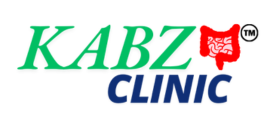Obstructions: Blockages in the digestive tract can cause constipation.
Understanding Obstructions: Causes, Symptoms, and Treatments

What is Obstructions ?
Obstructions in the digestive tract can indeed cause constipation, but they can also lead to other serious complications. These blockages can occur at various points along the digestive system, from the esophagus to the large intestine.
what are the symptoms of Obstructions ?
Symptoms can vary depending on the location of the blockage and its severity. Common symptoms include:
- Pain or discomfort in the abdomen
- Nausea and vomiting
- Constipation or diarrhea
- Bloating and abdominal distension
- Loss of appetite
- Weight loss
- Vomiting blood (in severe cases)
who can suffer from Obstructions ?
Anyone can develop a digestive tract obstruction, but certain factors may increase your risk, including:
- Age: Older adults are more likely to experience digestive problems.
- Medical conditions: Conditions such as inflammatory bowel disease (IBD), diverticulitis, and colon cancer can increase the risk of obstructions.
- Surgery: Previous abdominal surgery can lead to adhesions, which can cause blockages.
- Foreign objects: Swallowing non-food items can cause obstructions.
- Certain medications: Some medications can affect bowel motility and contribute to blockages.
What are the types of Obstructions ?
There are several types of digestive tract obstructions, including:
- Mechanical obstructions: These are caused by physical blockages, such as tumors, adhesions, or foreign objects.
- Functional obstructions: These are caused by problems with the muscles of the digestive tract, such as paralysis or weakened contractions.
Which diagnostic tests are available for Obstructions?
To diagnose a digestive tract obstruction, your doctor may use one or more of the following tests:
- Physical exam
- Abdominal X-ray
- CT scan
- MRI
- Barium enema
- Upper endoscopy
- Colonoscopy
What is the treatment of Obstructions ?
The treatment for a digestive tract obstruction depends on the underlying cause. In some cases, the blockage may resolve on its own with supportive care, such as fluids and medications to relieve nausea and vomiting. However, more severe obstructions may require surgical intervention to remove the blockage or repair the affected area of the digestive tract.
Which diet I should take, if any ?
If you have a digestive tract obstruction, your doctor may recommend a bland diet to reduce irritation and promote healing. This may include:
- Soft, easily digestible foods
- Avoidance of spicy, fatty, or fibrous foods
- Adequate hydration
Which speciality of the doctor will treat Obstructions ?
A gastroenterologist is a doctor who specializes in the digestive system. They are the best qualified to diagnose and treat digestive tract obstructions.
Is Obstructions completely curable ?
The curability of a digestive tract obstruction depends on the underlying cause and the severity of the condition. In many cases, the blockage can be successfully treated, but the risk of recurrence may depend on the underlying condition.





